I have a program similar to the following:
import time
from multiprocessing import Pool
class a_system():
def __init__(self,N):
self.N = N
self.L = [0 for _ in range(self.N)]
def comp(self,n):
self.L[n] = 1
return self.L
def reset(self):
self.L = [0 for _ in range(self.N)]
def individual_sim(iter):
global B, L, sys
sys.reset()
L[iter] = sys.comp(iter)
B += sum(L[iter])
time.sleep(1)
return L, B
def simulate(N_mc):
global B, L, sys
L = [[] for _ in range(N_mc)]
B = 0
sys = a_system(N_mc)
[*map(individual_sim, range(N_mc))]
# with Pool() as P:
# P.map(individual_sim,range(N_mc))
return L, B
if __name__=="__main__":
start = time.time()
L, B = simulate(N_mc=5)
print(L)
print(B)
print("Time elapsed: ",time.time()-start)
Here I would like to parallelise the line [*map(individual_sim, range(N_mc))] with multiprocessing. However, replacing this line with
with Pool() as P:
P.map(individual_sim,range(N_mc))
returns an empty list of lists.
If instead I use P.map_async, P.imap, or P.imap_unordered, I don't get an error, but the list and B are left empty.
How can I parallelise this code?
P.S.
I have tried ThreadPool from multiprocessing.pool, but I would like to avoid that, because the class a_system, which is a bit more complicated that the one shown here, needs to have a different copy for each worker (I get an exit code 139 (interrupted by signal 11: SIGSEGV)).
P.S.2 I might try to use sharedctypes or Managers (?), but I'm not sure how they work, nor which one should I use (or a combination?).
P.S.3
I have also tried modifying individual_sim as
def individual_sim(iter,B,L,sys):
sys.reset()
L[iter] = sys.comp(iter)
B += sum(L[iter])
time.sleep(1)
return L, B
and to use the following in simulation:
from functools import partial
part_individual_sim = partial(individual_sim, B=B, L=L, sys=sys)
with Pool() as P:
P.map(part_individual_sim,range(N_mc))
But I still get empty lists.
